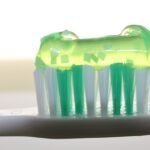Oral Health Care for Elderly Dementia and Alzheimer’s Patients
Oral Health Care for Elderly Dementia and Alzheimer’s Patients
Maintaining oral health is vital for everyone, but it becomes even more crucial for elderly dementia and Alzheimer’s patients. Cognitive decline often interferes with daily tasks, such as brushing teeth, and can make recognizing dental discomfort difficult.
 Proper oral health care for elderly dementia and Alzheimer’s patients helps prevent severe complications, improves quality of life, and alleviates pain. This blog delves into common oral health behaviours in dementia patients, identifies underlying causes, and offers practical caregiver advice.
Proper oral health care for elderly dementia and Alzheimer’s patients helps prevent severe complications, improves quality of life, and alleviates pain. This blog delves into common oral health behaviours in dementia patients, identifies underlying causes, and offers practical caregiver advice.
Common Oral Health Behaviors in Dementia and Alzheimer’s Patients
As dementia progresses, individuals may show specific behaviours related to oral health care, including:
Forgetting to brush their teeth
Resisting mouth care
Difficulty holding a toothbrush
Closing their lips or clenching their teeth
Refusing to open their mouth
Eating less or avoiding certain foods
Displaying increased restlessness or aggression
What Causes Oral Health Challenges in Dementia Patients?
The behavioural changes associated with oral health care for elderly dementia and Alzheimer’s patients stem from both physical and cognitive impairments. Key reasons include:
Memory Loss: Forgetting to brush teeth or not understanding the importance of oral hygiene.
Coordination Issues: Motor skill decline makes it hard to hold a toothbrush or apply toothpaste.
Pain and Discomfort: Gum disease, tooth decay, or ill-fitting dentures can lead to resistance during care.

Fear and Anxiety: Unfamiliar oral care sensations and a loss of independence may cause fear, clenching, or aggression.
Practical Solutions for Managing Oral Health Care Challenges
Caregivers play an essential role in ensuring proper oral health care for elderly dementia and Alzheimer’s patients. Addressing common challenges requires patience, creativity, and adaptability.
Encouraging Independence in Oral Care
Issue: Patients may lose interest in brushing or struggle with toothbrush handling.
Solution: Use clear instructions and demonstrate easy brushing techniques. Employ hand-over-hand guidance or “bridging” by mirroring actions.
Managing Resistance to Oral Care
Issue: Lip-closing, teeth-clenching, or head-moving complicates cleaning efforts.
Solution: Approach tasks calmly in a well-lit environment. Use distraction techniques like familiar music or soothing objects. For clenching, try massaging the cheek to relax muscles or use a small toothbrush, such as a child’s toothbrush.

Handling Aggression During Mouth Care
Issue: Aggression may stem from fear, pain, or frustration.
Solution: Stay calm and take breaks if aggression arises. Look for signs of pain, such as swollen gums or face-holding, and seek dental care if necessary. Involve a familiar person to help calm the patient when needed.
Assisting with Denture Care
Issue: Forgetting to remove or clean dentures can cause infections or discomfort.
Solution: Help patients clean dentures twice daily with a soft brush and recommended paste. Ensure they remove dentures at night to allow gums to rest. Use gentle encouragement if they resist assistance.
Reducing Sugar Intake
Issue: Sugary foods increase the risk of tooth decay, especially when oral hygiene is inconsistent.
Solution: Offer healthier alternatives like fresh fruits, vegetables, and water. Limit sugary snacks to protect teeth from decay.
Recognizing Dental Problems in Dementia Patients
Caregivers must monitor for dental issues since dementia patients may not effectively communicate pain. Signs to watch for include:
Avoiding hard foods or eating less
Swollen or bleeding gums
Restlessness or sudden aggression
Red patches, sores, or foul breath
Visible tooth decay
Electric vs. Manual Toothbrush for Dementia Patients
When choosing a toothbrush for oral health care for elderly dementia and Alzheimer’s patients, consider both options:

Electric Toothbrush: Easier for patients with coordination issues due to rotating bristles requiring minimal effort. However, vibrations or noise may cause anxiety.
Manual Toothbrush: Familiar and quieter, reducing anxiety. Caregivers can control pressure, benefiting patients with sensitive gums. However, it demands more effort and precision.
Choose based on the patient’s comfort, emphasizing gentle, thorough cleaning.
Conclusion: Prioritizing Oral Health Care for Elderly Dementia and Alzheimer’s Patients
Oral health care for elderly dementia and Alzheimer’s patients significantly impacts their overall well-being. A consistent oral care routine helps prevent infections, reduces tooth decay and gum disease risks, and improves quality of life. Caregivers’ patience, gentle approaches, and practical techniques make a remarkable difference in ensuring comfort and health.
Key Takeaways for Caregivers:
Use clear prompts and demonstrations to support brushing independence.
Recognize non-verbal signs of dental discomfort.
Reduce sugary foods and promote healthier options.
Seek professional dental care for visible decay or gum disease.
By integrating these strategies into daily routines, caregivers can provide effective oral health care for elderly dementia and Alzheimer’s patients, enhancing their comfort and quality of life.